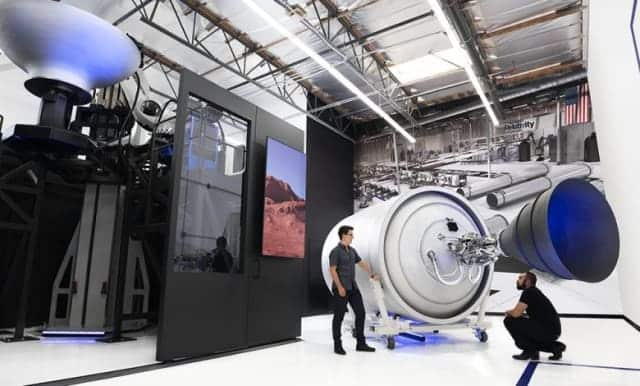The reusable rocket is a popular project among aerospace startups SpaceX and Blue Origin. SpaceX has been using 3D printing since 2014, and Velo3D has just signed a contract with a renowned aerospace company to manufacture more parts and components for its ongoing space program. 3D printing is part of automated manufacturing and can help reduce the cost of manufacturing rockets. In the spirit of automatic rocket manufacturing, the emerging company Relativity Space has just announced that it is building the first automatic rocket factory and providing launch services for satellite constellations.
It is relatively well-known that Relativistic Space uses robotic systems and 3D autonomous manufacturing systems to manufacture Terran 1, which is the first completely 3D printed rocket in history.
In order to establish an independent rocket factory and provide launch services for satellite constellations, Relativistic Space cooperates with 6K, a well-known developer of microwave plasma technology. The materials produced by 6K can be used in several challenging industrial markets, including lithium-ion battery manufacturing and additive manufacturing (AM).
The theory of relativity produces valuable waste, which in a new partnership will be processed into powder through 6K microwave plasma technology. The waste powder will be used as a new material in Relativity’s 3D printing system. The two companies are working together on how to create new and better materials to improve the results of rocket manufacturing, and they hope this will improve the effectiveness of space travel.
Relativity hopes to manage a recyclable waste closed loop and integrate it into its autonomous robot factory. It is hoped that the partnership with 6K will effectively improve its autonomous robot factory, which can 3D print rockets within 60 days.
6K’s UniMelt microwave plasma attracted people’s attention at Formnext 2019, when the company launched metal powder for additive manufacturing, which is a new product that is different from other additive manufacturing materials because it comes entirely from Recycled waste: recycled materials, turning and machine milling, for example.
At the same Formnext meeting, 6K also demonstrated a high-entropy alloy (HEA) component, which illustrates the previously unknown ability to customize different material properties of a material into one material. These characteristics include coupling characteristics such as high strength and extremely high elongation, improved strength-to-weight ratio and better material stability over a longer temperature range.
The partnership between Relativity Space and 6K will range from proof of concept to 3D printed parts. The waste will come directly from Relativity’s manufacturing system, and the company will process the waste through the 6K UniMelt process. The powder produced will be used to 3D print rocket parts.

